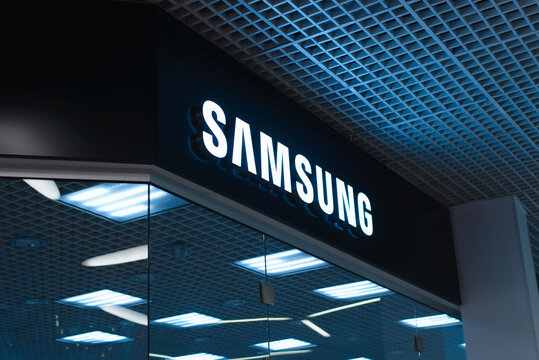Samsung Electronics apologized for the poor performance and cautioned that its third-quarter profit would fall short of market estimates. The tech giant is trailing its competitors in providing Nvidia with high-end chips in the burgeoning AI business.
The corporation has been the largest manufacturer of memory chips in the world for three decades. It faces increasing competition in the market for both traditional and sophisticated chips, as reflected by its rare apology.
Samsung reported that a delay in its AI chip business with a significant undisclosed customer led to decreased semiconductor profitability. Meanwhile, rivals in China expanded their supply of conventional chips.
The world’s top memory chip, smartphone, and TV maker forecasts an operating profit of 9.1 trillion won ($6.78 billion) for the three months ended Sept. 30. This figure contrasts with a 10.3 trillion won LSEG SmartEstimate.

This would be in contrast to 2.43 trillion won during the same time last year and 10.44 trillion won the quarter before.
“The earnings are a shock compared to what many analysts expected initially,” said Lee Min-hee, an analyst at BNK Investment & Securities.
“I don’t see its earnings improving in the current quarter,” he stated. He added that its significant exposure to the Chinese market hurts and that it trails behind SK Hynix in terms of boosting sales of high bandwidth memory (HBM) chips to Nvidia.
Analysts say Samsung’s late entry into the AI chip market increases its reliance on traditional, lower-margin processors. This reliance makes Samsung more vulnerable to competition from China and weakens demand for smartphones and PCs.
Chip sales have rebounded this year following a post-pandemic dip, largely due to high-margin processors found in AI servers. Samsung is yet to catch up to SK Hynix in terms of providing Nvidia, the leader in AI, with high-bandwidth memory (HBM) processors.
Samsung Electronics Vice Chairman Young Hyun Jun stated, “We have caused concerns about our technological competitiveness, with some talking about the crisis facing Samsung.”
He declared, “These are testing times,” promising to seize the chance to improve long-term technological competitiveness.
Samsung’s stock price has already dropped more than 20% this year. It decreased by 1.3%, falling short of the benchmark KOSPI’s 0.4% decline.
HBM CHIPS DELAYED
The launch of sales of Samsung’s premium HBM3E chips to a significant client has “been delayed relative to our expectations,” the company said in a statement. The matter was not clarified in detail.
In July, Samsung announced that it would begin making the chips in large quantities between July and September.
According to Samsung, the company’s memory chip division experienced a dip in earnings as certain mobile clients adjusted their stocks. Chinese competitors increased their supply of “legacy” goods, countering the strong demand for HBM and other chips used in servers.
Analysts speculated that Samsung’s contract chip manufacturing division, which creates bespoke chips for other businesses, likely lost money in the third quarter. This loss resulted from its inability to compete with market leader TSMC, which has Nvidia and Apple as clients.
On Monday, Jay Y. Lee, the CEO of Samsung, told Reuters that the company does not want to separate its logic chip design and contract chip manufacturing divisions. He emphasized their importance to Samsung’s operations.
According to Samsung, one-time expenses like “incentive” provisions and the unfavorable local currency also had a role in the drop in chip earnings.
Profits at its display unit increased as clients like Apple introduced new models. Meanwhile, its mobile division’s earnings rose over the previous quarter due to strong sales of flagship devices.
On October 31, Samsung will provide a thorough earnings announcement.
In May, Samsung abruptly removed the chief of its semiconductor division, transferring the keys to Jun in a bid to overcome a “chip crisis”.
According to Reuters in September, Samsung is reportedly laying off up to 30% of its foreign employees at certain of its subsidiaries, highlighting the difficulties it confronts.
Rival Micron of the United States announced last month that its first-quarter earnings exceeded Wall Street projections. The surge in demand for its memory chips used in artificial intelligence helped its revenue reach the best level in over ten years.
Click here for more news on Technology.

